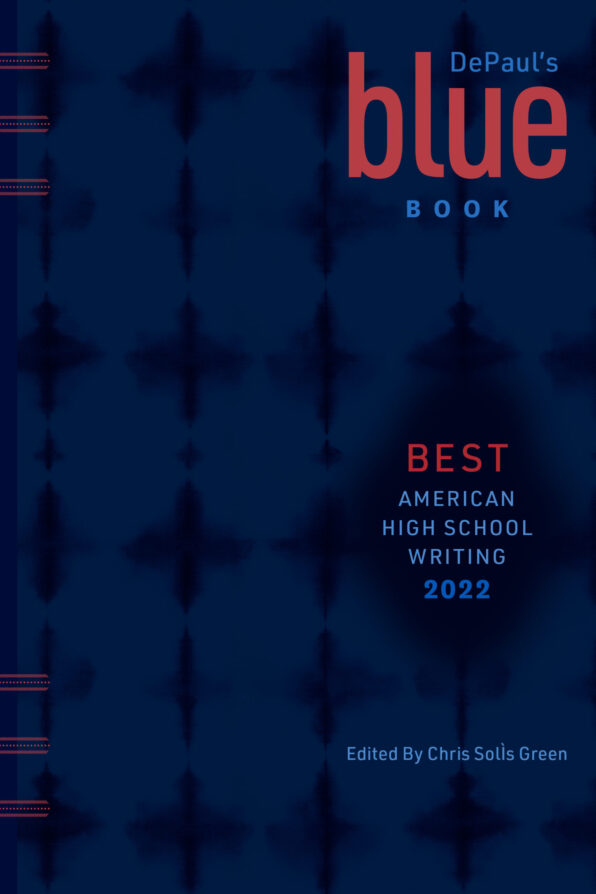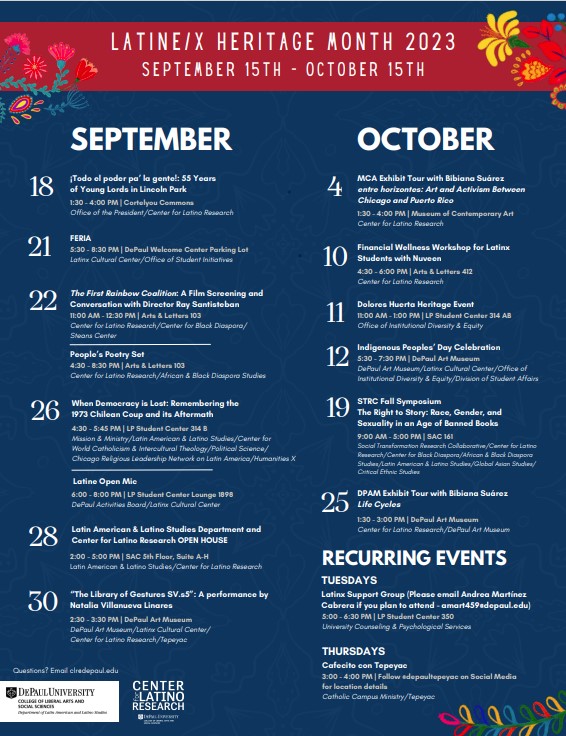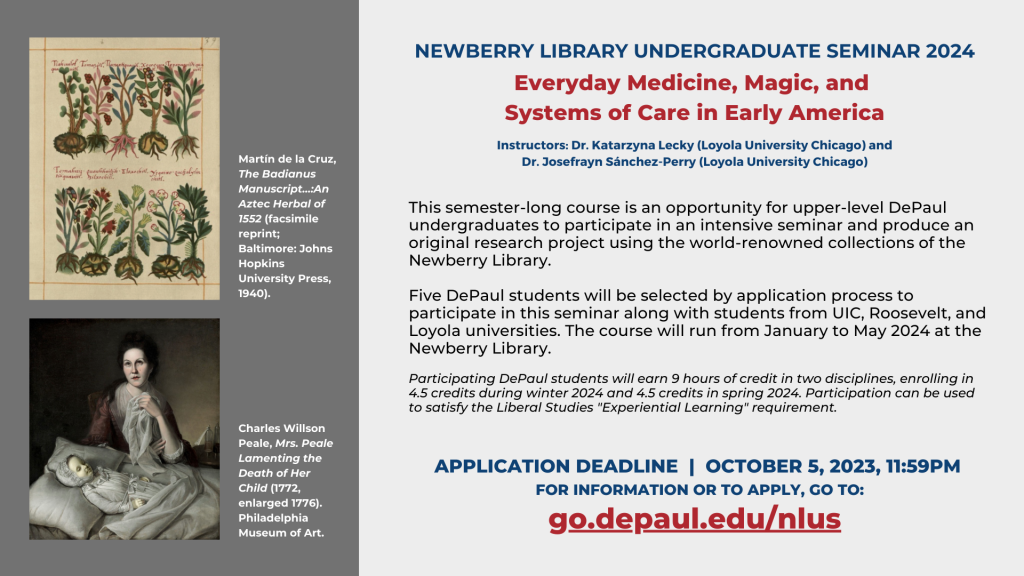
Category: Uncategorized
Spring English Conference Deadline Extended! April 7

Submit your work (in any genre) to participate in one of a kind panels with your DePaul peers! The themes of each panel are determined by the work submitted to the organizing body. Send your work to SpringEnglishConference@gmail.com and help shape the event!
Blue Demon Challenge
Blue Demon Challenge happens today—DePaul’s one-day frenzy of fundraising!
When 50 people make a gift to the Fund for Big Shoulders Books, Irene (LAS CER ’97) and Bill Beck will give $20,000!
Follow the LINK for more info

Check Out this Incredible Write-Up on DePaul’s Blue Book in Poets & Writers

DePaul’s Blue Book: Best American High School Writing 2022 and Chris Solis Green, who edited the project, have received yet another glowing piece written about the project, this time in Poetry & Writers, the prominent national trade magazine founded in 1970.
The Underground would like to congratulate Chris Green and all of the student editors who made Blue Book happen!
If you’re interested in procuring a copy, you can order one HERE
You can read the Poets and Writers piece HERE
Check Out Prof. Jessica Easto’s New Book, How To Taste Coffee, and Join Her at the Dayglow Launch Party

A must-read for any lover of coffee, How to Taste Coffee inspires readers to taste widely and sip consciously, with more appreciation, more discernment, and a greater sense of wonder.
When: Friday, October 20 from 7 to 10 p.m. (CT)
Where: Dayglow’s Chicago location in the Kimball Arts Center (1757 N. Kimball Ave.)
Purchasing a copy of the book enters you to win a Rancilio Stile grinder at the party! For the best chance to reserve a copy, purchase before October 1. *Grinder will be given out at the event*
Come celebrate the launch of How to Taste Coffee, the newest book by Jessica Easto, author of Craft Coffee: A Manual. Beverages and light nibbles will be served. This event is open to the public, but tickets (free!) are required; please reserve yours today.
Get Your FREE tickets and a copy of How To Taste Coffee HERE
Join PhD Student Rosa Martins in Her Reading Group for Undergraduate Students About the History of the Left and Marxism

My name is Rosa Martins, I am a member of the Platypus Affiliated Society, we are an international org and I would like to invite you all to join us for our year-long Marxist theory (not meant as endorsement or dogma but rather open intellectual inquiry — we have plenty of anti-Marxists who are great good faith attendees) student reading group, which is currently happening at DePaul. Platypus organizes reading groups, public fora, research, and journalism focused on problems and tasks inherited from the “Old” (1920s-30s), “New” (1960s-70s), and post-political (1980s-90s) Left, for the possibilities of emancipatory politics today.
The first half of the reading group (Fall) is entitled “What is the Left? What is Marxism?”, and you can view our semester syllabus here. The description is as follows: “The historical roots of the Left and Marxism in the bourgeois revolution of the 17th-18th centuries and its 19th-century crisis in capitalism are addressed through readings from Karl Marx and the background in radical bourgeois philosophy of Rousseau, Kant, and Hegel. 20th-century attempts to recover Marx and Marxism’s political consciousness by the Frankfurt School and in the 1960s-70s “New Left” frame the problem of consciousness of the Left in the mid-late 20th century leading to the present, through writings by Juliet Mitchell, Adolph Reed, Moishe Postone, and the Spartacist League/U.S., among others, and Theodor Adorno, Max Horkheimer, Georg Lukacs, Karl Korsch, and Leszek Kolakowski.”
All are welcome!
You can check out Platypus’ statement of purpose here.
If you are interested in the reading group and want more information on how to participate, please reach out to me at nmart119@depaul.edu !




